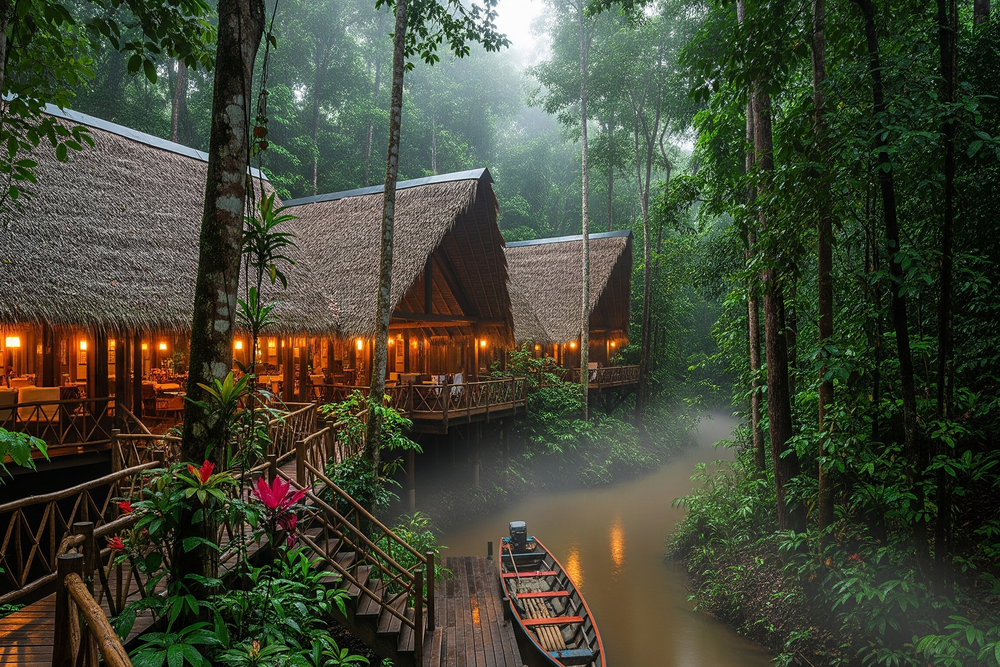The Best Eco-Friendly Hotels and Resorts Around the World
Carter Grant
2025-11-19
6 min read

Traveling offers a unique opportunity to explore new cultures and witness the planet's incredible beauty. However, travel also carries an environmental footprint. For the conscious traveler, choosing where to stay has become as important as the destination itself. A growing number of hotels and resorts are rising to this challenge, proving that luxury, comfort, and sustainability can go hand in hand. These pioneering establishments are redefining hospitality by placing environmental and social responsibility at the core of their operations. One of the most celebrated examples of sustainable luxury is the Soneva Fushi resort in the Maldives. This resort operates on a philosophy of "intelligent luxury," where creating unforgettable experiences for guests is seamlessly integrated with a deep respect for the environment. Soneva Fushi was a trailblazer in recycling, composting all of its food waste, and desalinating its own water, which is then served in reusable glass bottles. The resort is built from sustainable materials and is designed to blend into its natural surroundings. Beyond its own operations, Soneva Fushi invests in community projects and carbon-offsetting programs, demonstrating a holistic commitment to sustainability that extends far beyond its shores.
In the heart of the Costa Rican rainforest, the Pacuare Lodge offers a different kind of eco-conscious escape. Accessible only by 4x4 vehicle or a thrilling whitewater raft trip, the lodge is a testament to immersive, low-impact tourism. The entire property was built with minimal disruption to the surrounding forest, and it operates completely off-grid, generating its own electricity from a turbine in a nearby stream. The lodge actively works to protect the local environment, including reintroducing howler monkeys to the area and supporting conservation projects for the indigenous Cabécar people. Here, guests don't just observe nature; they become part of a living, breathing ecosystem that is being actively preserved. Venturing to Europe, the Whitepod Eco-Luxury Hotel in the Swiss Alps presents a unique model for sustainable accommodation. Guests stay in geodesic dome "pods" that are energy-efficient and have a minimal physical footprint on the pristine mountain landscape. These pods are designed to be heated by pellet stoves and use local spring water, significantly reducing resource consumption. In the summer, the white canvas is replaced with a green one to blend in with the grass. This innovative design proves that unique architectural concepts can also be profoundly eco-friendly, offering a cozy and luxurious experience while respecting the delicate alpine environment.

Fogo Island Inn, located off the coast of Newfoundland, Canada, is a stunning example of social sustainability. The inn was conceived as a community asset, with all profits being reinvested back into the local community to help it thrive. Built on stilts to minimize its impact on the rocky terrain, the inn's architecture is a modern tribute to the area's fishing heritage. It operates with a deep commitment to its place, sourcing food locally, employing local artisans to build its custom furniture, and providing a powerful economic engine for one of Canada's oldest rural communities. This model of "social business" shows that hospitality can be a powerful force for cultural and economic preservation. In the arid landscape of Namibia, Wolwedans sets the standard for sustainable tourism in a fragile desert ecosystem. Spread across the vast NamibRand Nature Reserve, its camps are designed to be temporary structures that could be removed without leaving a trace. The resort runs on solar power, manages its water consumption with extreme care, and is deeply involved in the conservation of the reserve. Wolwedans also focuses on uplifting its staff through training and education, creating sustainable livelihoods in a remote region. A stay here is not just a vacation but a direct contribution to the long-term protection of one of Africa's most breathtaking landscapes.
These hotels and resorts are more than just places to sleep. They represent a fundamental shift in the travel industry, moving away from extractive tourism toward a regenerative model. They demonstrate that it is possible to provide exceptional experiences while protecting natural environments, supporting local communities, and preserving cultural heritage. By choosing to stay at such places, travelers can use their purchasing power to support a more sustainable and equitable world, ensuring that the beautiful destinations we love to visit will be here for generations to come.

